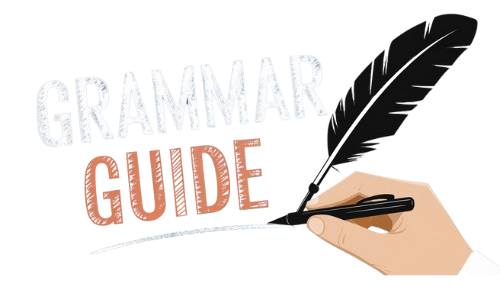When writing or speaking, using “firstly, secondly, thirdly” can feel repetitive. Luckily, there are many other ways to organize ideas. You can say “to begin with,” “next,” and “finally.” Other options include “first of all,” “then,” and “lastly.”
For formal writing, try “in the first place,” “subsequently,” and “in conclusion.” In casual speech, “first off,” “after that,” and “to wrap up” work well. Choosing different phrases makes your writing more engaging and natural.
Key Takeaways
- Using varied transition words improves clarity and engagement in writing.
- Alternatives to “Firstly, Secondly, Thirdly” include “To begin with, Next, Finally” or “At the outset, Moving on, In conclusion.”
- Different phrases help avoid repetition and maintain reader interest.
- The choice of transition words should match the tone and context of your writing.
- Expanding vocabulary enhances the flow and effectiveness of communication.
1. To Begin With
This phrase is used to introduce the first point or idea in a discussion. It sets the stage for what follows. It is often used to provide an overview or general introduction before diving into specifics.
Example: To begin with, regular exercise improves overall health by boosting the immune system and increasing energy levels.
Short Letter:
Dear Reader,
To begin with, I would like to express my sincere gratitude for your time and interest in this discussion. Your curiosity and willingness to learn inspire meaningful conversations. Let’s embark on this journey together and explore valuable insights.
Best Regards,
[Your Name]
2. Initially
This word is used to describe the starting phase of an event, process, or situation. It emphasizes the first actions or thoughts before further developments.
Example: Initially, the project seemed overwhelming, but with proper planning, we managed to complete it successfully.
Short Letter:
Dear Friend,
Initially, I was hesitant to step out of my comfort zone, but with encouragement and perseverance, I discovered new strengths. I hope you also embrace new challenges with confidence.
Warm Wishes,
[Your Name]
3. First and Foremost
This phrase is used to highlight the most important aspect before addressing other points. It emphasizes priority.
Example: First and foremost, maintaining honesty in relationships is crucial for long-term trust and respect.
Short Letter:
Dear Team,
First and foremost, I want to acknowledge your hard work and dedication. Your contributions are invaluable, and I truly appreciate your efforts. Let’s continue striving for excellence together.
Sincerely,
[Your Name]
4. At the Outset
This phrase is used to indicate the beginning stage of something, often suggesting an important statement or warning.
Example: At the outset, we knew that building a business required patience and resilience.
Short Letter:
Dear Student,
At the outset, let me congratulate you on taking the first step toward your goals. Your dedication will shape your future success. Keep pushing forward!
Best Wishes,
[Your Name]
5. Primarily
This word emphasizes the main reason or primary focus of something. It directs attention to the core aspect.
Example: The project was primarily designed to help students learn coding efficiently.
Short Letter:
Dear Colleague,
Primarily, I am reaching out to express my appreciation for your support and cooperation. Your efforts do not go unnoticed, and I value our teamwork.
Best,
[Your Name]
6. In the First Place
This phrase is used to clarify an initial reason or action before considering other aspects.
Example: In the first place, we should focus on understanding the problem before jumping to solutions.
Short Letter:
Dear Reader,
In the first place, let me thank you for your patience and commitment to learning. Your dedication will surely lead to great achievements. Keep striving!
Kind Regards,
[Your Name]
7. To Start With
Used when introducing an idea before moving on to other details.
Example: To start with, let’s review the basic principles before advancing to complex topics.
Short Letter:
Dear Friend,
To start with, I would like to extend my warmest greetings. Every journey begins with a single step, and I hope yours is filled with success.
Sincerely,
[Your Name]
8. As a Starting Point
Indicates a foundational idea or reference before building upon it.
Example: As a starting point, understanding the customer’s needs is essential for business success.
Short Letter:
Dear Entrepreneur,
As a starting point, define your goals clearly. With determination and perseverance, success will follow. Keep striving for greatness!
Best,
[Your Name]
9. In the Beginning
Refers to the early stages of an event, situation, or process.
Example: In the beginning, the journey seemed challenging, but over time, it became more manageable.
Short Letter:
Dear Traveler,
In the beginning, every path seems uncertain, but each step brings new experiences. Enjoy the journey!
Best Wishes,
[Your Name]
10. Fundamentally
Emphasizes the core principle or foundation of something.
Example: Fundamentally, education is about developing critical thinking and problem-solving skills.
Short Letter:
Dear Student,
Fundamentally, success is about persistence and learning from failures. Keep moving forward with confidence!
Sincerely,
[Your Name]
11. At the Commencement
This phrase highlights the beginning of a formal process or event.
Example: At the commencement of the meeting, we discussed our objectives.
Short Letter:
Dear Graduate,
At the commencement of your new journey, embrace opportunities with courage. Wishing you success in all endeavors.
Best Regards,
[Your Name]
12. As an Initial Step
Indicates the first measure taken in a process.
Example: As an initial step, we conducted thorough research to understand market needs.
Short Letter:
Dear Innovator,
As an initial step, believe in your vision. Your hard work and creativity will bring positive change.
Sincerely,
[Your Name]
13. For Starters
Used to introduce a primary idea before expanding on it.
Example: For starters, we should evaluate our financial situation before making investments.
Short Letter:
Dear Learner,
For starters, take small steps towards your goals, and soon, you will achieve great things. Stay motivated!
Best,
[Your Name]
14. First Off
Indicates the initial point in a series.
Example: First off, let’s address the major concerns before moving forward.
Short Letter:
Dear Team,
First off, thank you for your dedication. Let’s keep striving for success together!
Sincerely,
[Your Name]
15. As a Preliminary Measure
Refers to a preparatory step taken before advancing.
Example: As a preliminary measure, we tested the software before launch.
Short Letter:
Dear Scientist,
As a preliminary measure, thorough research ensures accurate results. Keep innovating!
Best,
[Your Name]
16. At the Start
Marks the beginning of a situation or process.
Example: At the start, we focused on setting clear goals.
Short Letter:
Dear Athlete,
At the start of every race, remember your training and push forward with confidence!
Sincerely,
[Your Name]
17. At the Initiation
This phrase refers to the very first phase of an event or activity.
Example: At the initiation of the project, we outlined our main objectives.
Short Letter:
Dear Leader,
At the initiation of any journey, determination is key. Stay focused and work hard to achieve success!
Best Wishes,
[Your Name]
18. As a Preliminary Step
This phrase refers to an action taken in preparation for something more significant.
Example: As a preliminary step, we gathered relevant data before drafting the final report.
Short Letter:
Dear Researcher,
As a preliminary step, thorough analysis and planning pave the way for success. Keep up the great work!
Best,
[Your Name]
19. To Kick Things Off
Used to signify the exciting beginning of an event or process.
Example: To kick things off, we started the event with an inspiring keynote speech.
Short Letter:
Dear Team,
To kick things off, let’s approach our goals with enthusiasm and dedication. Looking forward to a great journey ahead!
Sincerely,
[Your Name]
20. To Commence
A formal way to indicate the beginning of something.
Example: To commence the ceremony, the chairman gave a welcome address.
Short Letter:
Dear Attendees,
To commence this event, I extend my heartfelt gratitude to everyone present. Let’s make this occasion a memorable one!
Warm Regards,
[Your Name]
Conclusion
When presenting ideas in a structured manner, using varied transition words helps maintain clarity and engagement. Instead of relying on “Firstly, Secondly, Thirdly,” you can use alternatives like “To begin with, Next, Finally” or “At the outset, Moving on, In conclusion.” These phrases enhance readability and add variety to your writing.
Additionally, expressions such as “For starters, In addition, Lastly” or “As a first step, Following that, To wrap up” make your points more dynamic. Using different transitions prevents repetition and keeps your audience interested. Choosing the right phrase depends on the tone and context of your writing.
shoaib is a skilled writer specializing in grammar-related blogs. With a passion for language, he simplifies complex grammar rules, helping readers improve their writing and communication skills.







